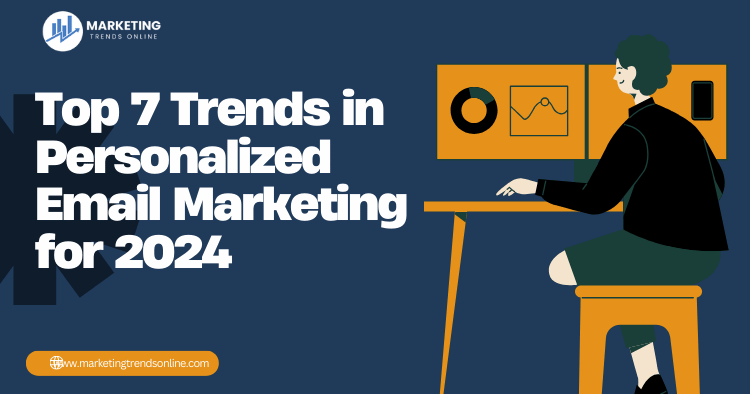Introduction
In 2024, personalized mobile marketing is set to evolve at an unprecedented pace. As consumer expectations soar, brands must leverage innovative strategies to deliver tailored experiences that resonate with their audience. This article explores the top five trends shaping the landscape of personalized mobile marketing this year, ensuring your marketing strategies remain ahead of the curve.
1. AI-Powered Personalization
Artificial Intelligence (AI) continues to transform how businesses approach personalization in mobile marketing. With advancements in machine learning, brands can analyze massive amounts of data to create hyper-targeted campaigns.
Key Benefits of AI in Personalization:
- Predictive Analytics: AI can forecast customer behaviors, allowing brands to tailor offers and content dynamically. For example, if a user frequently purchases fitness products, they might receive personalized workout plans or discounts on related items.
- Chatbots: AI-driven chatbots enhance customer interaction by providing real-time responses to queries, offering personalized recommendations based on previous interactions.
- Dynamic Content: AI enables the creation of content that adapts based on user preferences, ensuring that the right message reaches the right person at the right time.
For more on AI in marketing, check out this resource from HubSpot. Additionally, you can explore top AI personalization trends shaping marketing in 2024.
2. Hyper-Localization
With the rise of mobile usage, hyper-localization has become a game changer in personalized marketing. This trend focuses on delivering content and offers based on a user’s real-time location.
Why Hyper-Localization Matters:
- Increased Engagement: By sending location-specific notifications, brands can engage users more effectively. For instance, a coffee shop could send a discount offer when a customer is within a certain radius.
- Culturally Relevant Content: Tailoring messages to local cultures and languages can significantly enhance relatability and connection with the audience.
Practical Examples:
| Brand | Strategy | Result |
|---|---|---|
| Starbucks | Location-based offers | Increased foot traffic |
| McDonald’s | Local menu items | Higher customer satisfaction |
For further insights, visit Think with Google.
3. Omnichannel Experiences
In 2024, creating seamless omnichannel experiences will be crucial for brands looking to deliver personalized mobile marketing. Consumers interact with brands through multiple touchpoints, and an integrated approach ensures consistency across all channels.
Benefits of Omnichannel Marketing:
- Unified Customer Journey: By integrating online and offline experiences, brands can provide a cohesive journey that enhances customer satisfaction.
- Data-Driven Insights: Brands can utilize data collected from various channels to create a comprehensive view of customer preferences and behaviors.
Implementation Tips:
- Consistent Branding: Ensure your brand voice and visuals are uniform across all platforms.
- Cross-Channel Promotions: Utilize social media to promote in-store events and vice versa, enhancing customer engagement.
For more on omnichannel strategies, check out this article from Salesforce. You can also explore the top content personalization trends for 2024-2025.
4. Interactive Content
Interactive content is gaining traction as a powerful tool in personalized mobile marketing. By engaging users with interactive elements, brands can create a more immersive experience that encourages participation and sharing.
Types of Interactive Content:
- Quizzes and Polls: These can provide personalized recommendations based on user responses.
- Augmented Reality (AR): AR allows users to visualize products in their environment, enhancing the shopping experience.
Why It Works:
- Higher Engagement Rates: Interactive content sees higher engagement compared to static content, making it an effective way to capture attention.
- Enhanced Data Collection: Brands can collect valuable insights through user interactions, informing future marketing strategies.
To dive deeper into interactive content, check out Content Marketing Institute.
5. Privacy-First Marketing
With growing concerns around data privacy, 2024 will see a shift towards privacy-first marketing strategies. Brands will need to balance personalization with respect for consumer privacy.
Key Components of Privacy-First Marketing:
- Transparent Data Usage: Clearly communicate how customer data is collected and used, fostering trust.
- Opt-In Mechanisms: Encourage users to opt-in for personalized experiences, ensuring compliance with regulations like GDPR.
Benefits:
- Building Trust: A commitment to privacy can enhance brand reputation and customer loyalty.
- Regulatory Compliance: Adhering to privacy regulations helps avoid legal issues and potential fines.
For more information on privacy in marketing, consult The International Association of Privacy Professionals (IAPP). You can also explore data privacy trends shaping marketing in 2024.
Conclusion
As we navigate 2024, these five trends in personalized mobile marketing—AI-powered personalization, hyper-localization, omnichannel experiences, interactive content, and privacy-first marketing—will play a pivotal role in shaping successful marketing strategies. By embracing these trends, brands can create meaningful connections with their audience, driving engagement and loyalty.
FAQs
Q1: How can I start implementing AI in my mobile marketing strategy?
A1: Begin by analyzing your existing data to identify patterns. Invest in AI tools that can help automate personalization and enhance customer interactions.
Q2: What are some effective ways to gather customer location data?
A2: Use geolocation services, incentivize app downloads, and promote location-based features to encourage users to share their location.
Q3: Why is privacy important in mobile marketing?
A3: Ensuring privacy builds trust with your audience and helps comply with legal regulations, protecting your brand from potential backlash and fines.
Feel free to reach out if you have any additional questions or need further insights into personalized mobile marketing!




